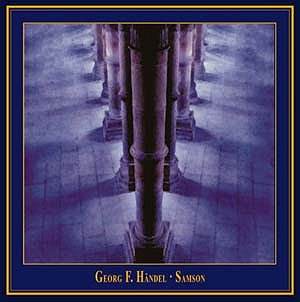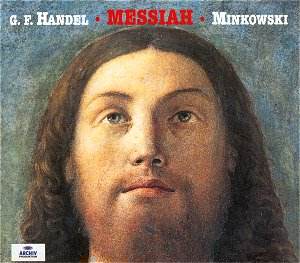 Composer: Georg Friedrich Handel
Composer: Georg Friedrich Handel
Works: Samson
Performers: Sinéad Pratschke, soprano; Michael Chance, alto; Marc LeBrocq, tenor; Raimund Nolte, baritone; David Thomas, bass; Maulbronner Kammerchor; Barockorchester der Klosterkonzert, Jürgen Budday
Recording: September 25-26, 1999, Maulbronn Monastery, Germany
Label: K&K Verlagsanstalt
Handel’s oratorio Samson, composed in 1741, stands as a monumental reflection on the themes of betrayal, redemption, and divine strength within the framework of its biblical narrative. It draws from the story of the Israelite judge Samson, whose extraordinary strength is linked to his uncut hair. The oratorio unfolds after his capture and blinding by the Philistines, capturing the poignant moments of his internal struggle, culminating in a climactic act of destruction that reclaims his identity and delivers his people. Handel’s masterful integration of drama and lyricism is on full display, further enriched by the weight of its historical context; it was composed in an era when oratorio was evolving into a significant form of musical expression, reflecting both personal and collective human experiences.
This recording, captured live in the acoustically rich Maulbronn Monastery, brings forth an impressive soundscape that enhances Handel’s intricate textures. The Maulbronner Kammerchor delivers a stirring performance, their blend of voices resonating beautifully within the church’s stone walls. The sense of space is palpable, particularly in the choral sections, where the natural echo imbues the music with a sacred aura. This quality resonates profoundly in the choir’s entry during the second section, revealing the full breadth of their sound—each voice distinct yet harmoniously intertwined, creating a powerful sonic tapestry that is both exhilarating and contemplative.
Sinéad Pratschke’s portrayal of the opening aria, “Ye men of Gaza,” is noteworthy; her voice, characterized by a luminous quality, communicates both beauty and emotional depth. The ethereal quality of her singing is particularly pronounced in the aria “With plaintive notes…”, where her phrasing recalls the delicate interplay found in Bach’s sacred works. The violin’s obbligato weaving around her voice evokes a sense of yearning, masterfully capturing the essence of the text. Michael Chance, as the alto, shines in “Then long eternity shall greet your bliss,” showcasing his technical prowess and expressive range. The transition into the more rapid section of the aria is handled with agility, while his interpretation of “Return, O God of Hosts!” stands out as a highlight of the performance. The aria unfolds like a miniature opera, where Chance’s commanding presence guides the listener through its emotional landscape.
Raimund Nolte, as the baritone, brings gravitas to “Just are the ways of God to man,” while David Thomas’s bass voice resonates powerfully in “Honour and arms scorn such a foe,” both offering nuanced interpretations that complement the work’s overarching themes of justice and valor. Marc LeBrocq’s portrayal of the titular character embodies a compelling combination of strength and vulnerability, effectively capturing the duality of Samson’s character.
While live recordings inherently present challenges—occasional muddiness when the orchestra swells beyond the soloists—this performance finds an admirable balance. The engineering captures the essence of the venue, presenting a lush and immersive auditory experience. The excitement of a live performance is palpable, lending an immediacy that studio recordings can sometimes lack.
This rendition of Samson offers a compelling interpretation of one of Handel’s most profound works, marked by a blend of emotional sincerity and technical excellence. The performers have successfully harnessed the unique acoustics of the Maulbronn Monastery to create an experience that resonates both musically and spiritually. Such a recording not only honors Handel’s genius but also stands as a vital contribution to the oratorio’s discography, worthy of the attention of both connoisseurs and newcomers to his oeuvre.
